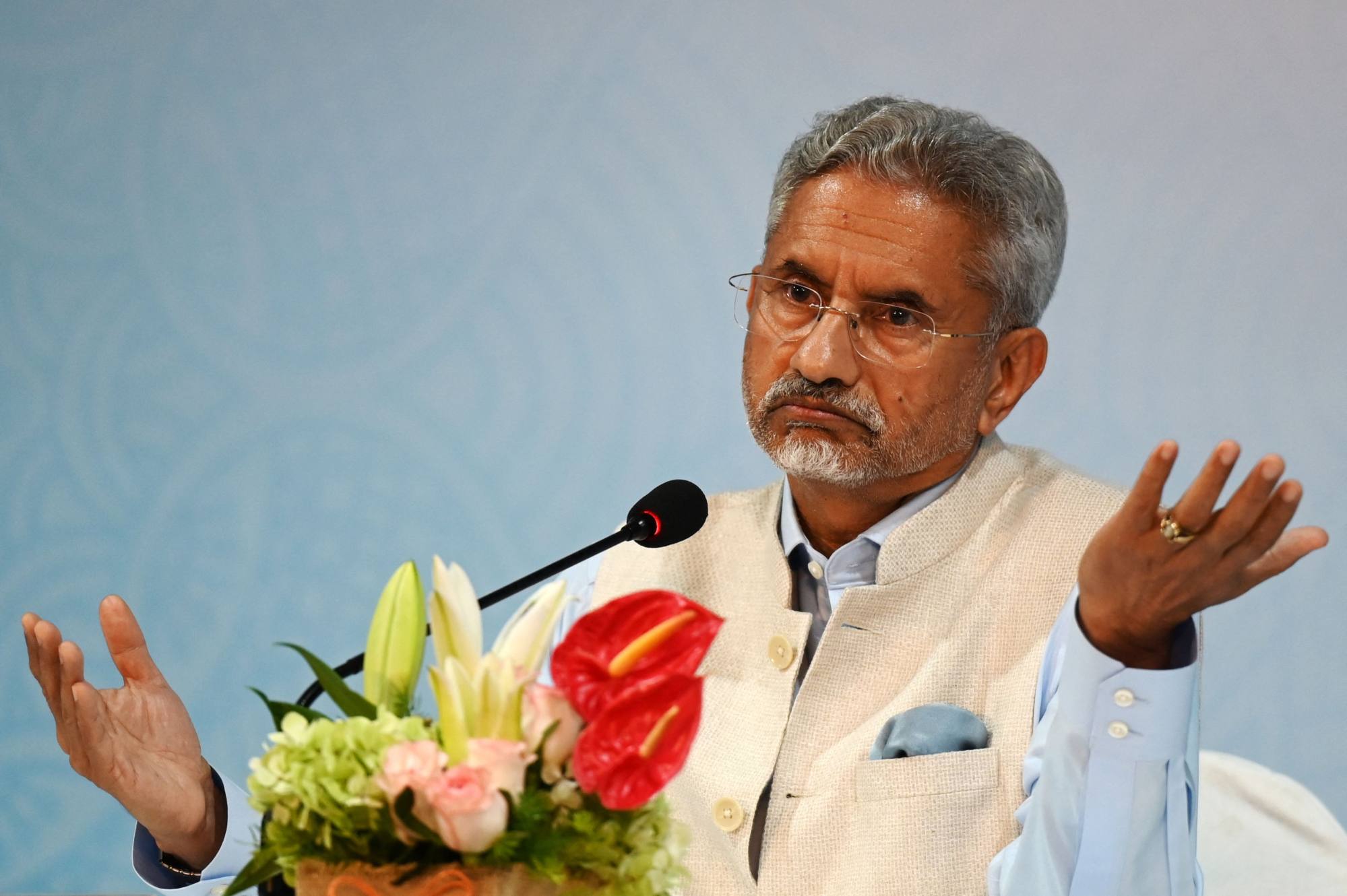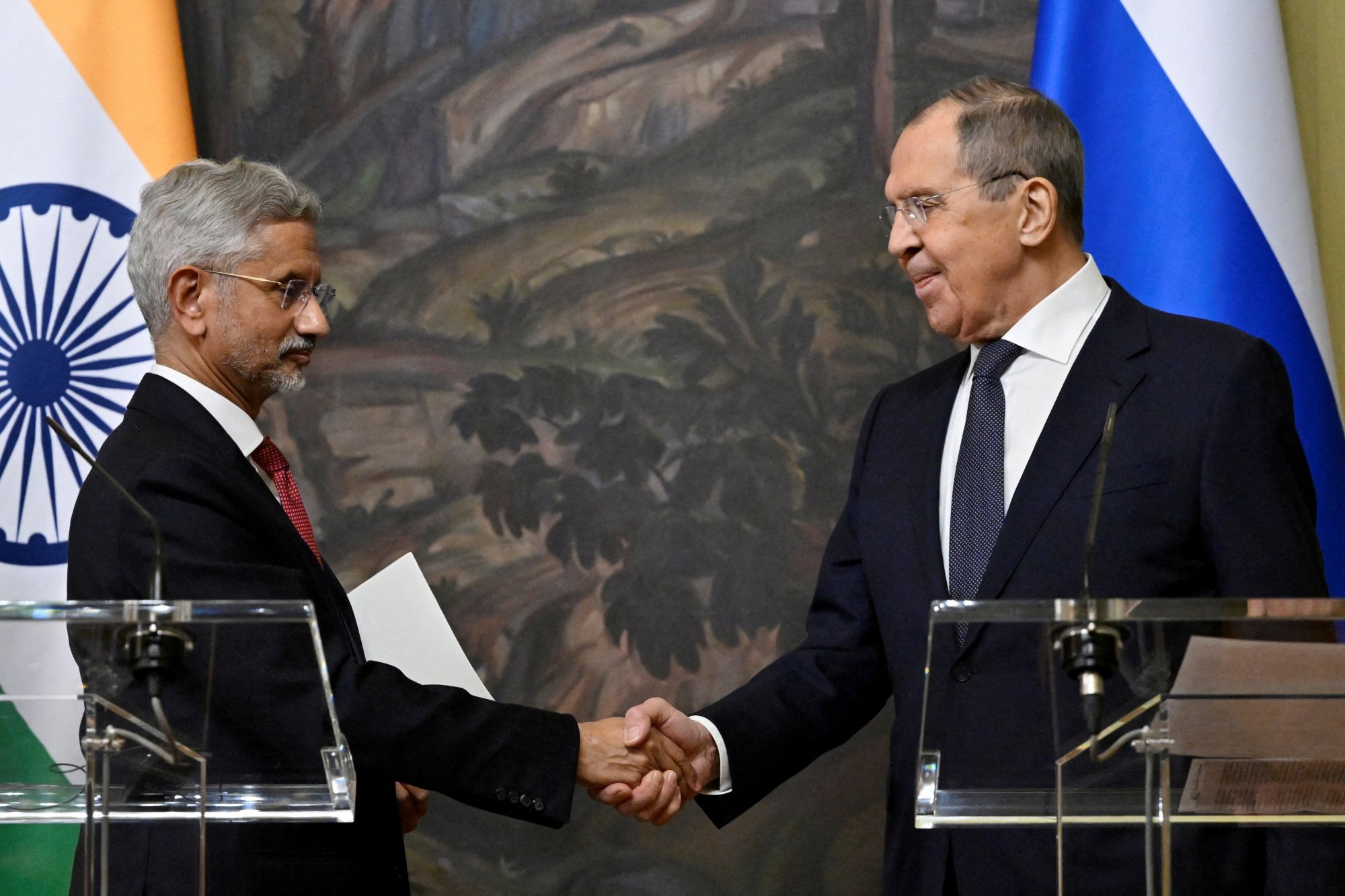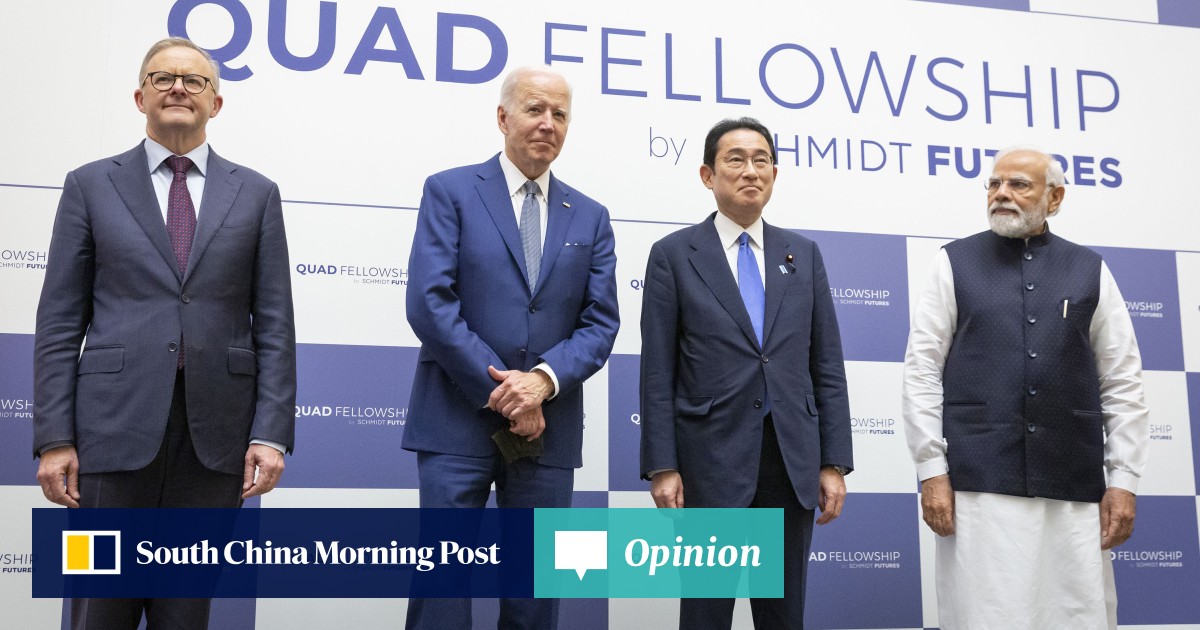Another instance that reflected India’s misfit in the Quad, ironically, was Foreign Minister Subrahmanyam Jaishankar’s speech at the inaugural Quad Think Tank Forum.
He claimed the Quad reflected “the growth of a multipolar order”, “post-alliance and post-Cold-War thinking”, was “against spheres of influence”, “expresses the democratising of the global space and a collaborative, not unilateral, approach” and “is a statement that in this day and age, others cannot have a veto on our choices”.

Had he mixed up his notes for the Quad forum with those for a Brics gathering? (It would not be the first time an Indian foreign minister has mixed up his notes.)
Jaishankar’s claim that the Quad reflected those values is at odds with how the other three members function or even envision the world order. Paradoxically, his claims fit neatly into the agenda of a grouping like Brics.
First, while multipolarity is championed by nations of the Global South, including China, India and Russia, neither Japan nor Australia arguably does, and the US definitely doesn’t.
Finally, despite calls for democratisation of the global space by nations such as South Africa, China and Brazil – particularly in multilateral institutions and the sanctions regime – the Western world appears in no hurry to give up the privilege of unilateral action. On the contrary, Western powers have pressured nations to join their unilateral sanctions on Russia.
It is truly difficult to see how the Quad reflects Jaishankar’s claims, which align more naturally with the causes of the Global South.
South Korea is showing up India’s ill fit as a US ally and Quad member
South Korea is showing up India’s ill fit as a US ally and Quad member
At the Raisina Dialogue, “China loomed over everything, of course, but was rarely named”, noted Ian Hall, a professor of international relations at Australia’s Griffith University, who attended. As Jaishankar said at the dialogue: “People say that the Quad is directed against somebody. And it struck me that yes, you know, all four of us have had problems with the UK.”
Despite sanctions against Russia imposed by its fellow Quad members, India continues to advocate for Russia to expand its partnerships with Asian nations and for Moscow to be given “multiple options”.

Clearly, India is not moving towards the West. For Western nations to align themselves with India’s realpolitik would require a drastic tailoring of their approach to world affairs – a highly unlikely transformation.
India will continue to straddle different camps. Russia remains a steadfast partner, most recently training Indian astronauts for Gaganyaan, India’s maiden space mission. Across the world, there are only a few groups where India’s attitudes and vision for the global order are shared by most members, if not all. Brics is one, I2U2 could be another if one discounts the US. But the Quad is certainly not.
Akhil Ramesh is director of the India Programme and Economic Statecraft Initiative at the Pacific Forum


